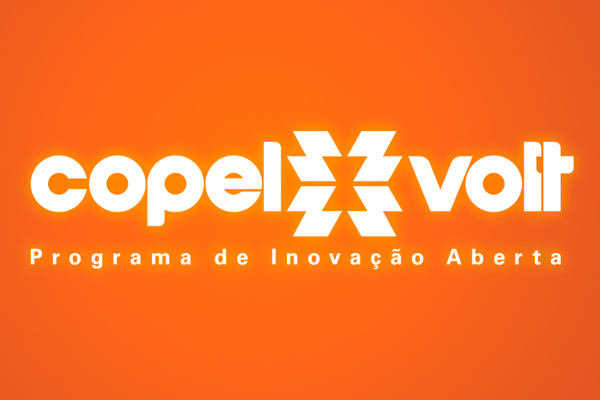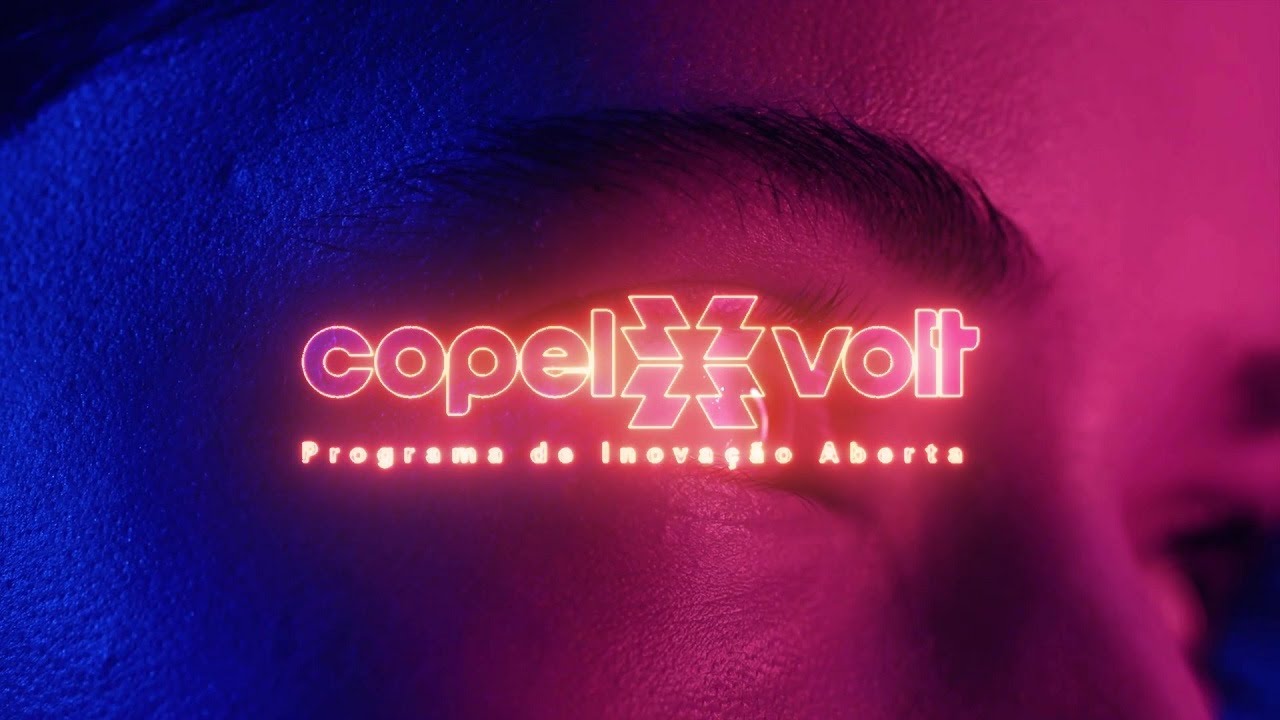Copel Volt
Copel Volt is the company’s open innovation program, which seeks disruptive solutions in the energy sector in partnership with startups from around the world. This initiative reflects Copel’s commitment to integrating its ecosystem at the forefront of innovation, promoting transformation and adding value to business and internal processes.
Open innovation, the basis of Copel Volt, is a reality in which competitiveness depends on the ability to integrate external ideas into the corporate environment. Startups are characterized by their agile structure, technological focus and willingness to take risks, offering innovative solutions to pre-established challenges by driving both the improvement of organizational processes and the creation of new markets.

By connecting the company to a diversified ecosystem, Copel Volt has the following strategic objectives:
- Identify opportunities and solutions that promote operational efficiency and the transition to renewable sources;
- Encourage the upskilling of employees through the dissemination of innovative methodologies, such as the agile method and Design Thinking;
- Improve the integration of emerging technologies that expand access to renewable energy and improve the performance of the electricity system.
In 2024, Copel Volt’s strategy evolved into more targeted action, with participation in multi-partner programs and proofs of concept (PoCs) for specific challenges in the sector. This move allowed Copel to expand its connections with startups and innovative companies, both national and international, promoting the integration of new solutions and technologies essential to the transformation of the electricity sector.
2021/2022 edition
In the first edition of Copel Volt, launched in 2021 with the support of the Beta-i consultancy, 180 startups applied to present projects that could add value to the company’s business and processes. During this cycle, Copel’s multidisciplinary teams experienced intense training processes in innovation, going through stages of selection and definition of challenges. Each participating startup had access to resources of up to R$300,000 to carry out its proof of concept. The finalist startups include:
- Move – Technological solutions for the integrated management of electric vehicle recharging, expanding the network of electro-posts and promoting the unification of the recharging system.
- CUBi – Platform that optimizes corporate energy management by automating the analysis of invoices, allowing savings opportunities to be identified.
- NEX Energy – Initiative aimed at renting renewable power plants, providing up to 20% savings for registered companies, strengthening distributed generation of solar and wind energy.
- Prescinto – Solution based on artificial intelligence to identify and correct performance problems in clean energy plants, by analyzing historical data and training operational teams.
- Watt-Is – Project that uses artificial intelligence to convert smart metering data into insights for the efficient use of energy, benefiting around 5,000 consumer units.
2022/2023 edition
The second edition of Copel Volt, launched at the end of 2022, expanded the scope of the program with 270 applications from startups from around the world. Each project now has funding of up to R$360,000 to carry out the proof of concept. The finalist startups in this edition include:
- LexaTexer – German startup that has developed a real-time monitoring system for hydroelectric turbines, using artificial intelligence for predictive maintenance and energy management.
- Overstory – Dutch startup that integrates satellite images, machine learning and real-time data to offer visibility and recommendations for vegetation management, optimizing risk management.
- Repenso – Brazilian startup that has created a platform for the professional management of greenhouse gas emissions, enabling decision-making to reduce environmental impacts.
- Shipay – Brazilian startup that integrates payments via PIX into an automated process, promoting greater efficiency in financial processes.
- Solenium – Colombian startup that has proposed a pilot plant for the production, storage and re-electrification of green hydrogen, integrated with solar energy generation and a real-time monitoring system.
2024 Edition – Multipartner Programs
In 2024, Copel Volt’s strategy evolved towards finding more targeted solutions and strengthening the innovation ecosystem. The initiatives focused on participation in multi-partner programs, expanding the company’s connection with startups and innovative companies, and resulting in significant advances for the electricity sector.
Conecta Startup Brasil
Participating actively in the initiative of the Ministry of Science, Technology and Innovation (MCTI) and the Brazilian Agency for Industrial Development (ABDI), Copel took part in the Conecta Startup Brasil program, which focuses on pre-accelerating startups at an early stage. In this action, initiatives were selected to solve challenges related to:
- Environmental monitoring:
– The startup Siapesq, with PhytoBloom Vision, has developed a system that uses satellite images and artificial intelligence to monitor and predict the proliferation of aquatic plants in reservoirs, promoting the sustainable management of water resources. - Telemetry in remote areas:
– The startup Porang has proposed an innovative telemetry solution based on LoRa technology, which includes an app and an alert system for monitoring equipment in remote regions, without relying on an internet connection. - Facility security:
– The startup Noleak implemented an artificial intelligence solution for analyzing security camera images, identifying risks and anomalies in real time, and increasing the security of Copel’s facilities.
Copel’s participation in Conecta Startup Brasil was recognized for the exemplary conduct of the proofs of concept and the positive impact on the development of the participating startups.
INES (Innovating to Net Zero in the Electricity Sector)
At the same time, Copel took part in the INES program, promoted by the UK’s Catapult Energy System, in partnership with Energisa and Eletrobras. This initiative seeks to foster the global innovation ecosystem in the electricity sector by challenging UK startups to develop solutions for:
- Transmission lines in extreme weather conditions;
- Integration of distributed generation – mainly solar photovoltaic – into distribution networks.
Nine startups were evaluated by Copel’s technical teams, demonstrating the company’s commitment to seeking innovative solutions on a global scale and reinforcing its international reputation for open innovation.
Alignment with the Sustainable Development Goals (SDGs)
Copel Volt’s initiatives are directly aligned with the following priority and strategic SDGs for the electricity sector:
- SDG 7 – Clean and Affordable Energy;
- SDG 8 – Decent Work and Economic Growth;
- SDG 9 – Industry, Innovation and Infrastructure;
- SDG 11 – Sustainable Cities and Communities;
- SDG 12 – Responsible Consumption and Production;
- SDG 13 – Action Against Global Climate Change;
- SDG 17 – Partnerships and Means of Implementation.
This connection with the SDGs reinforces Copel’s commitment to developing solutions that promote sustainable growth and reduce environmental impacts.
In summary, the trajectory of Copel Volt, from its previous editions to the strategic evolution of 2024, illustrates the company’s ability to connect with the best open innovation practices. By participating in multi-partner programs and holding PoCs for specific challenges, the program both strengthens the innovation ecosystem and consolidates Copel’s position as a protagonist in the transformation of the electricity sector towards a more sustainable, resilient and intelligent future.




